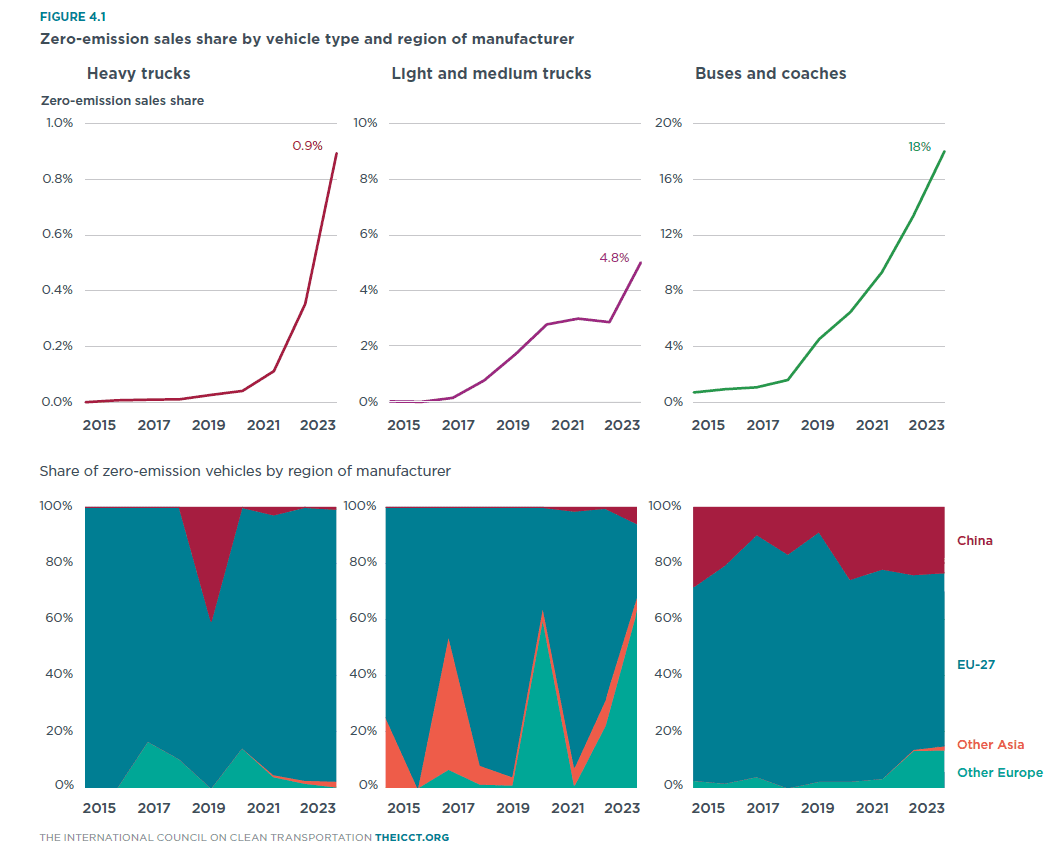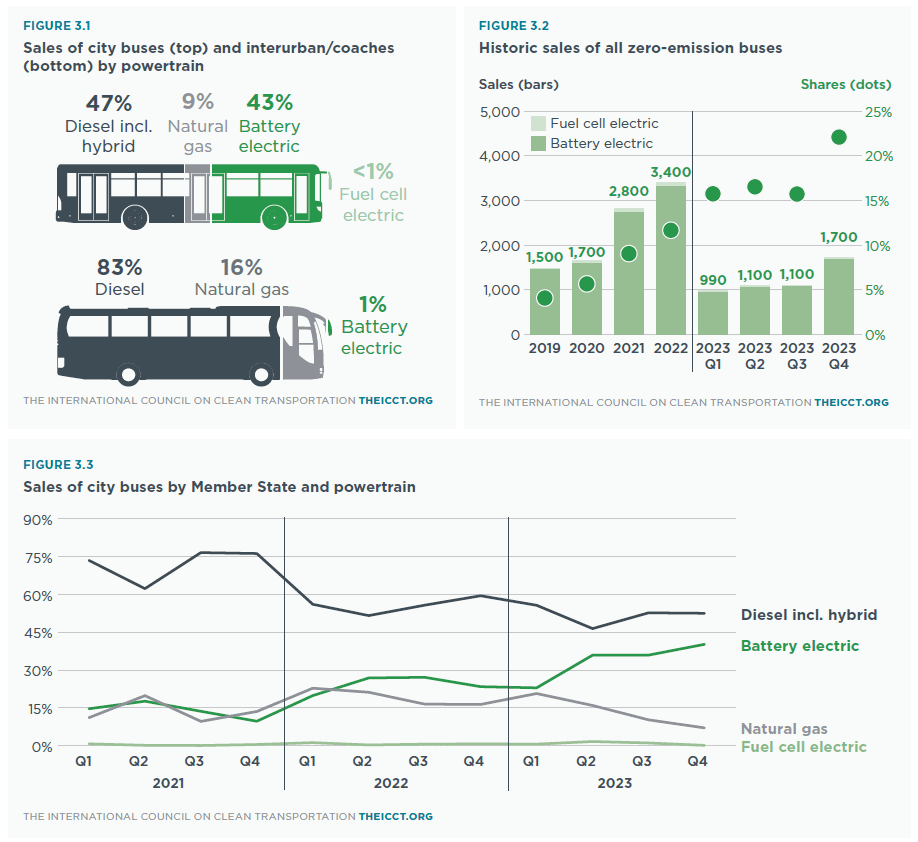The European Parliament has voted to adopt new regulations for heavy vehicle emissions, sending a strong signal to manufacturers to accelerate the switch to electric or watch their addressable market evaporate.
The new regulation which covers new trucks and buses was passed by the EU parliament with 341 votes in favour and 268 against.
CO2 emissions for large trucks, including “vocational vehicles” such as garbage trucks, tippers and concrete mixers, will be reduced by 45% by 2030 (compared to 2019 levels). By 2035 truck emissions will need to be cut further to 65% and 90% by 2040.
Regulations on busses are even stronger requiring all new urban buses to reduce their emissions by 90% by 2030 with a full phase out of new fossil buses by 2035.
ICCT welcomes EU’s new regulations on truck pollution
The new regulations were strongly welcomed by clean technology groups including the International Council on Clean Transportation (ICCT).
“What seemed inconceivable just years ago is now the unequivocal path forward,” said Felipe Rodríguez, Director of the Heavy-duty Vehicle Program at the ICCT.
“This historic legislation offers clarity to industry, leveraging zero-emission heavy vehicles as the most technologically feasible and cost-effective route to meet Europe’s climate goals.
“The trucking industry, Europe’s second largest contributor to transport CO2 emissions, is about to experience a transformative shift,” said Rodríguez.
The ICCT says trucks and buses make up just 2% of total vehicles on EU roads but account for a quarter of all transport-related emissions. The ICCT also notes the regulatory scope has also been significantly expanded to include more truck types, buses, coaches, trailers and vocational vehicles.
“Under this new scope, over 90% of all new truck and bus sales are covered by the revised CO2 standards, up from 65% under the original standards. Small trucks of less than 5 tonnes remain unregulated but will be considered in the review in 2027.” says the ICCT.
EU regulators boosting a booming industry
Commenting on the rapid development of Europe’s electric truck manufacturing, ICCT’s expert on Europe’s truck CO2 standards Eamonn Mulholland says electric heavy vehicle sales are booming in the EU.
“European regulators are seizing the opportunity to boost a booming industry: electric trucks. Over the past year, these zero-emission vehicles have been hitting EU roads, with sales tripling between 2022 and 2023.
Shares of zero-emission city buses also accelerated last year, overtaking diesel sales to become the most popular powertrain, and reaching an all-time high of over 40% by the end of 2023,” said Eamonn Mulholland, ICCT’s expert on Europe’s truck CO2 standards.
In a recent report covering the development of Europe’s electric heavy vehicle industry, the ICCT says 11,000 zero-emission heavy-duty vehicles were sold in Europe in 2023, more than double the 5,000 sold in 2022, and 18% of all buses and coaches sold in the EU in 2023 were electric.

The report shows growth is strongest for city buses and that in the Q4 of 2023, 43% of all new city buses sold in Europe were fully electric, up from less than 30% in 2022.

European leaders talking “radical change”
The strict new pollution rules for heavy vehicles comes as European leaders start to wake up to the clean technology arms race between China and the US which up until now has been sidelining Europe’s industrial base.
The former head of the EU Central Bank Mario Draghi, who is currently drafting a report on the EU’s competitiveness for the European Commission says that Europe must undergo “radical change” to remain competitive with the massive clean tech government stimulus programs in China and the United States.
Ahead of #EUCO summit on 🇪🇺competitiveness, Mario Draghi says🇺🇸is no longer playing by the free-market rules it invented, and EU must respond radically.
“Our response has been constrained because our organisation [is] designed for the world of yesterday"https://t.co/Mk23L1S9ep
— Dave Keating (@DaveKeating) April 16, 2024
“Others are no longer playing by the rules, and are actively pursuing policies to enhance their competitive positions,” Draghi said during a speech this week.
“Our response has been constrained because our organisation, decision-making, and financing are designed for the world of yesterday, Pre-COVID, pre-Ukraine, pre-conflagration in the Middle-East – pre- the return of great-power rivalry.”
“But we need a European Union that is fit for today’s and tomorrow’s world. What I’m proposing… is radical change.”
Draghi’s comments follow equally urgent calls from French auto giant Renault, who’s CEO Luca de Meo recently said the European automotive industry “is facing an onslaught of electric vehicles from China” and advocates for “a European Marshall Plan” to accelerate the transition to EVs.
“We are aware that this will require a paradigm shift,” says de Meo. “The prosperity of Europe is at stake.”

Daniel Bleakley is a clean technology researcher and advocate with a background in engineering and business. He has a strong interest in electric vehicles, renewable energy, manufacturing and public policy.

